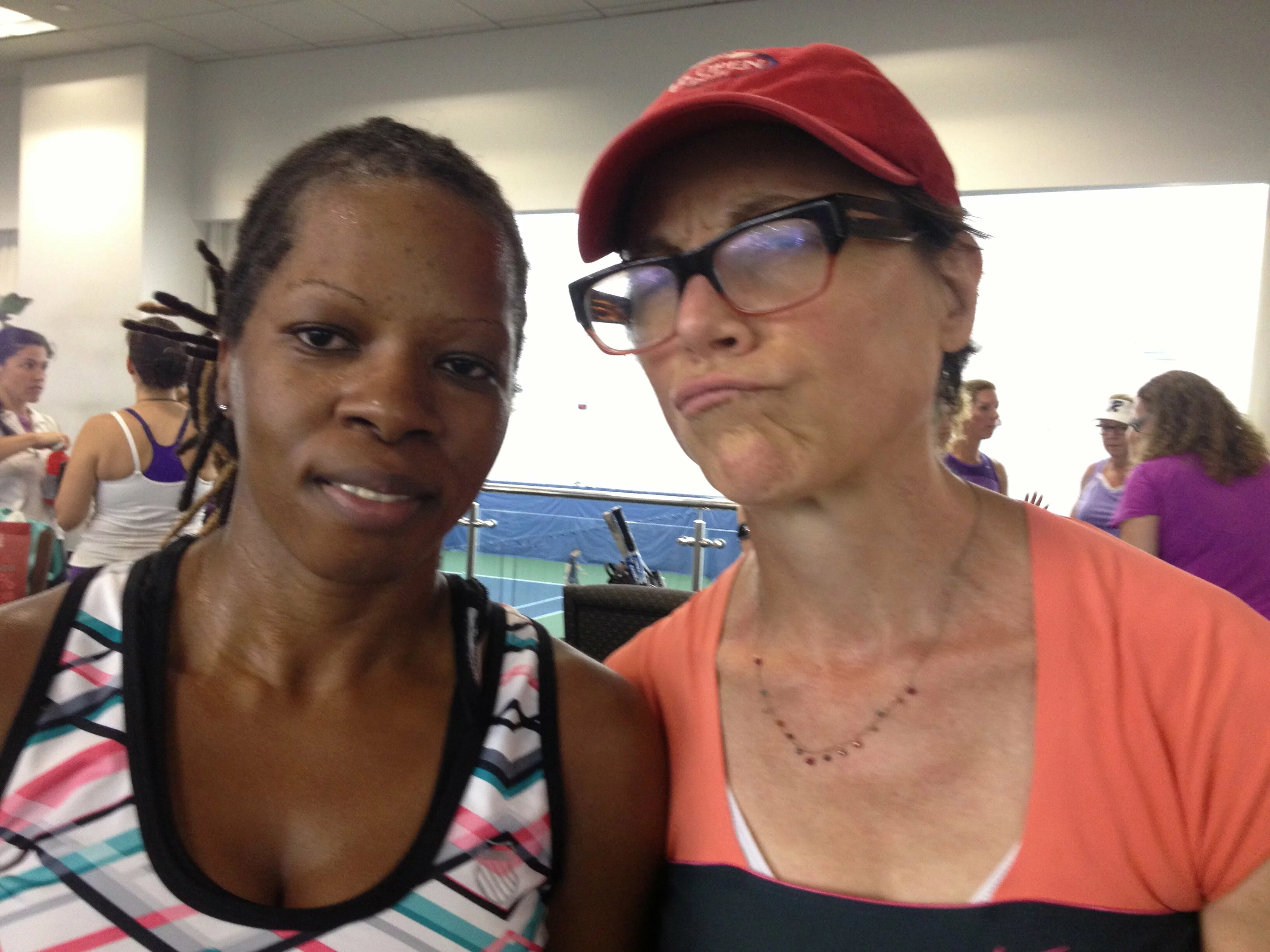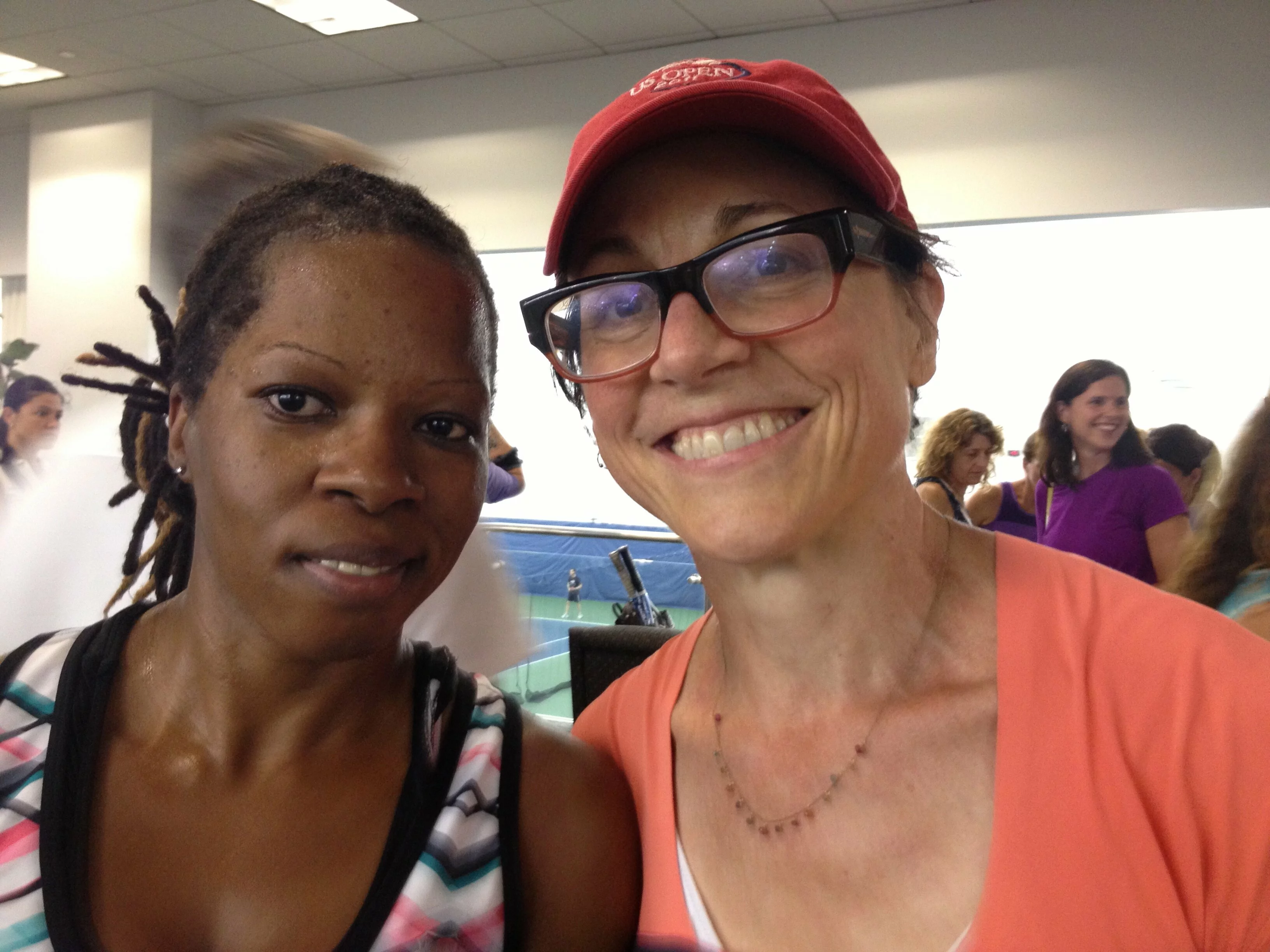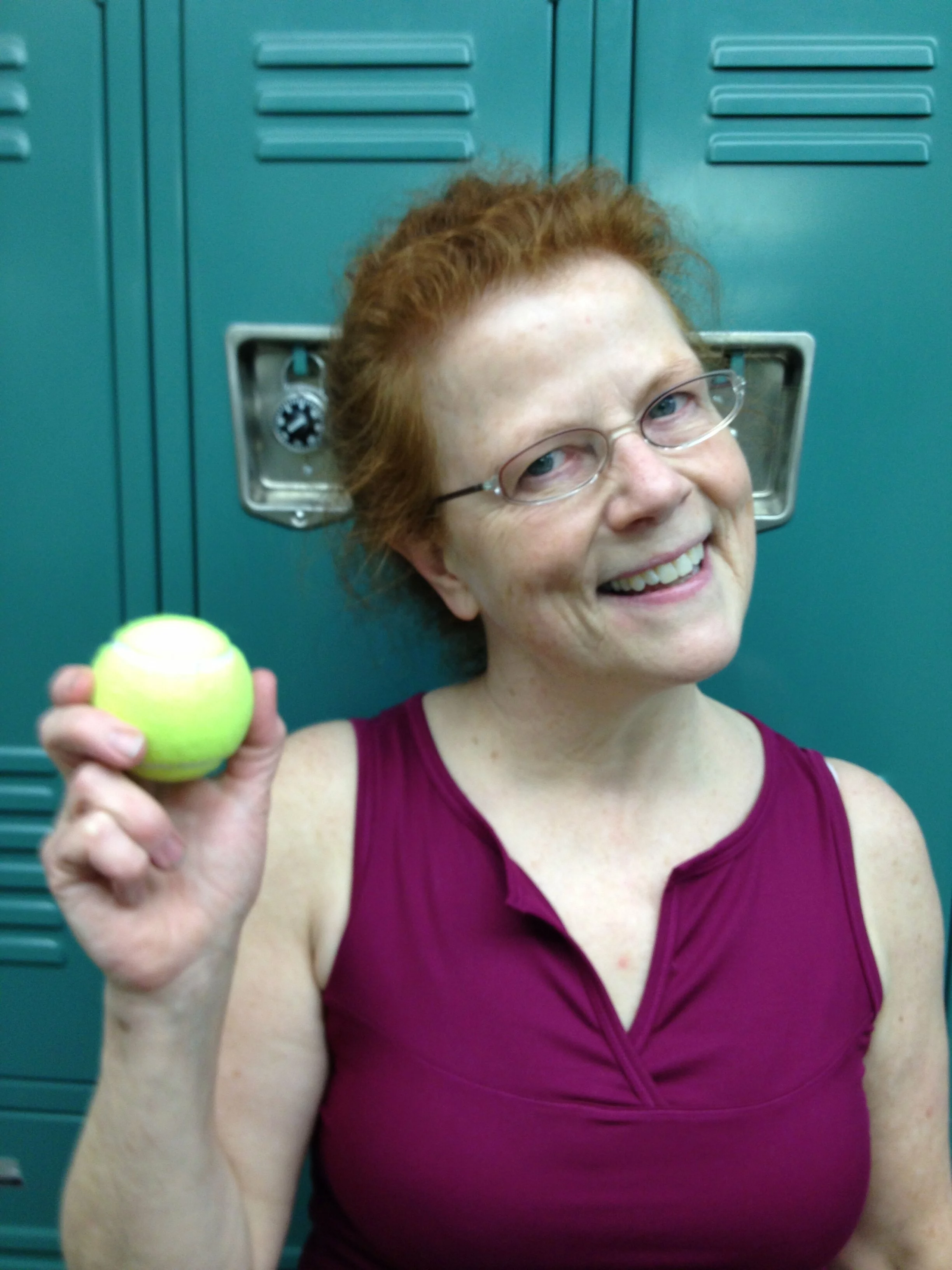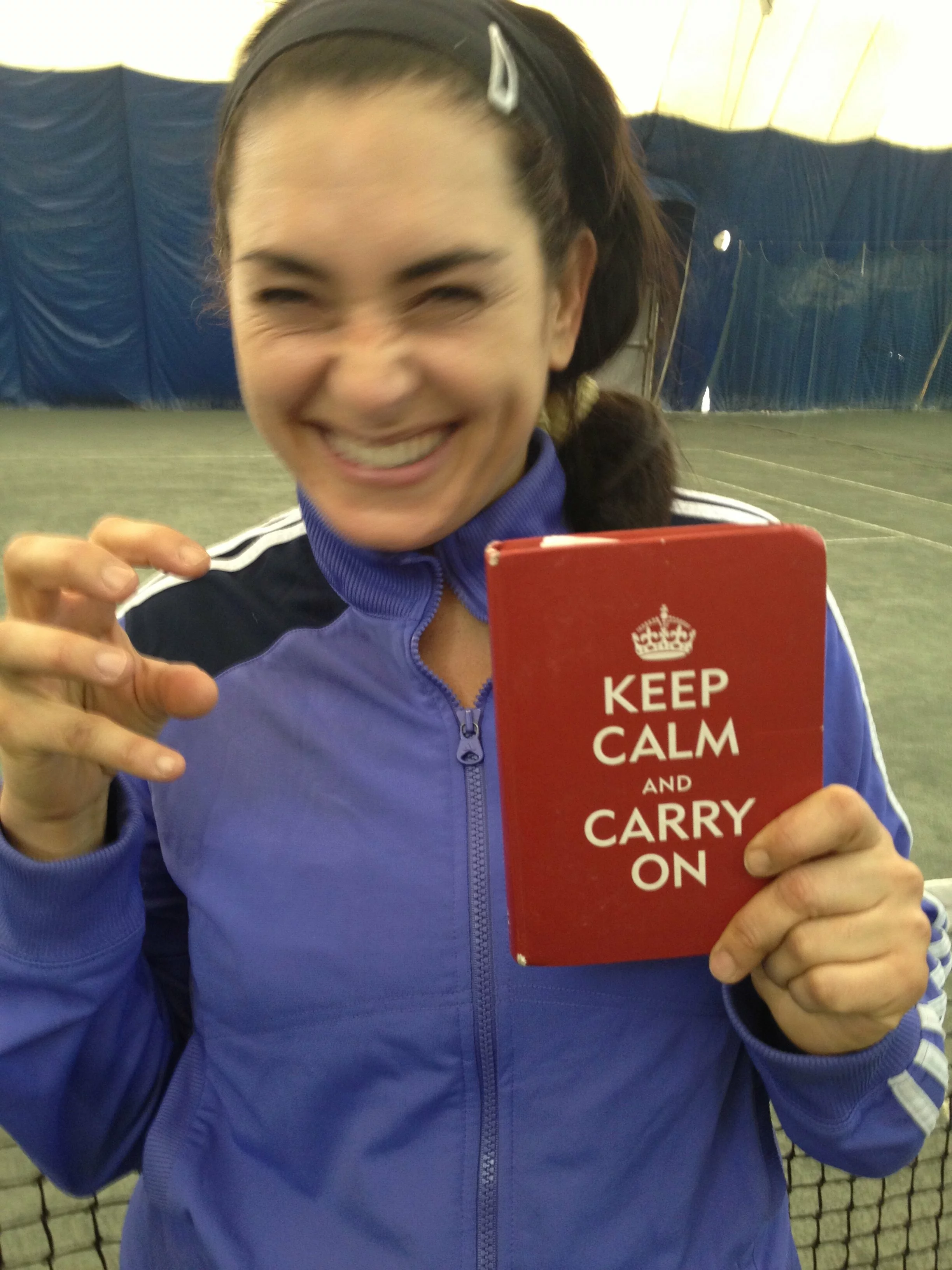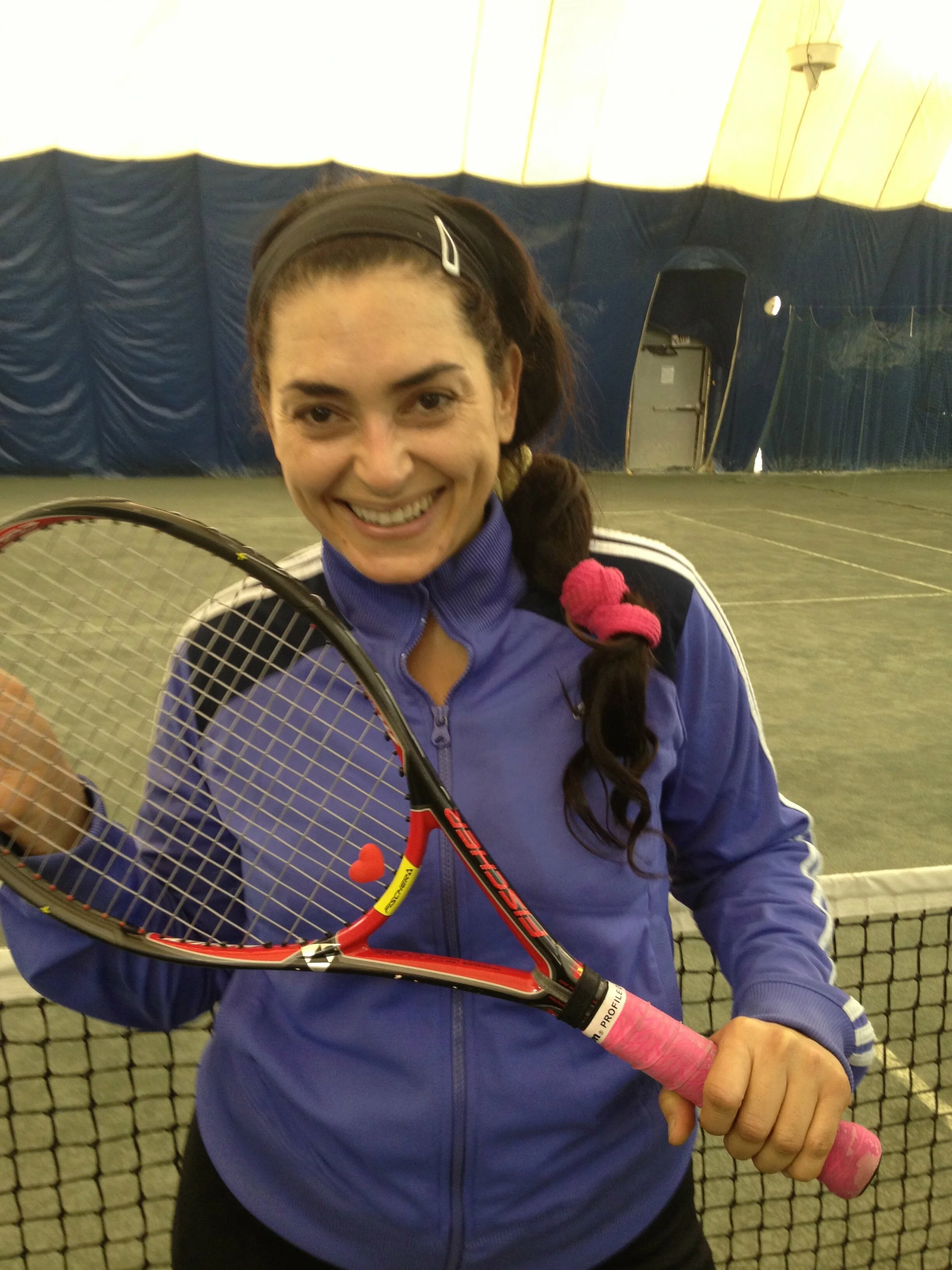The photo instantly caught my eye: a middle-aged man in tennis whites doubled over at the baseline of a greenish-grey Har Tru tennis court, hands on his knees, racquet dangling, limp and useless.
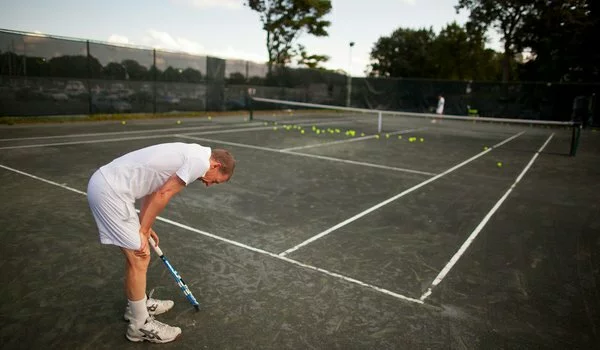 Robert Caplin for the New York Times, courtesy nytimes.com
Robert Caplin for the New York Times, courtesy nytimes.com
It was the same tennis asana I've practiced many, many times on the court: Downward Facing Blown Shot.
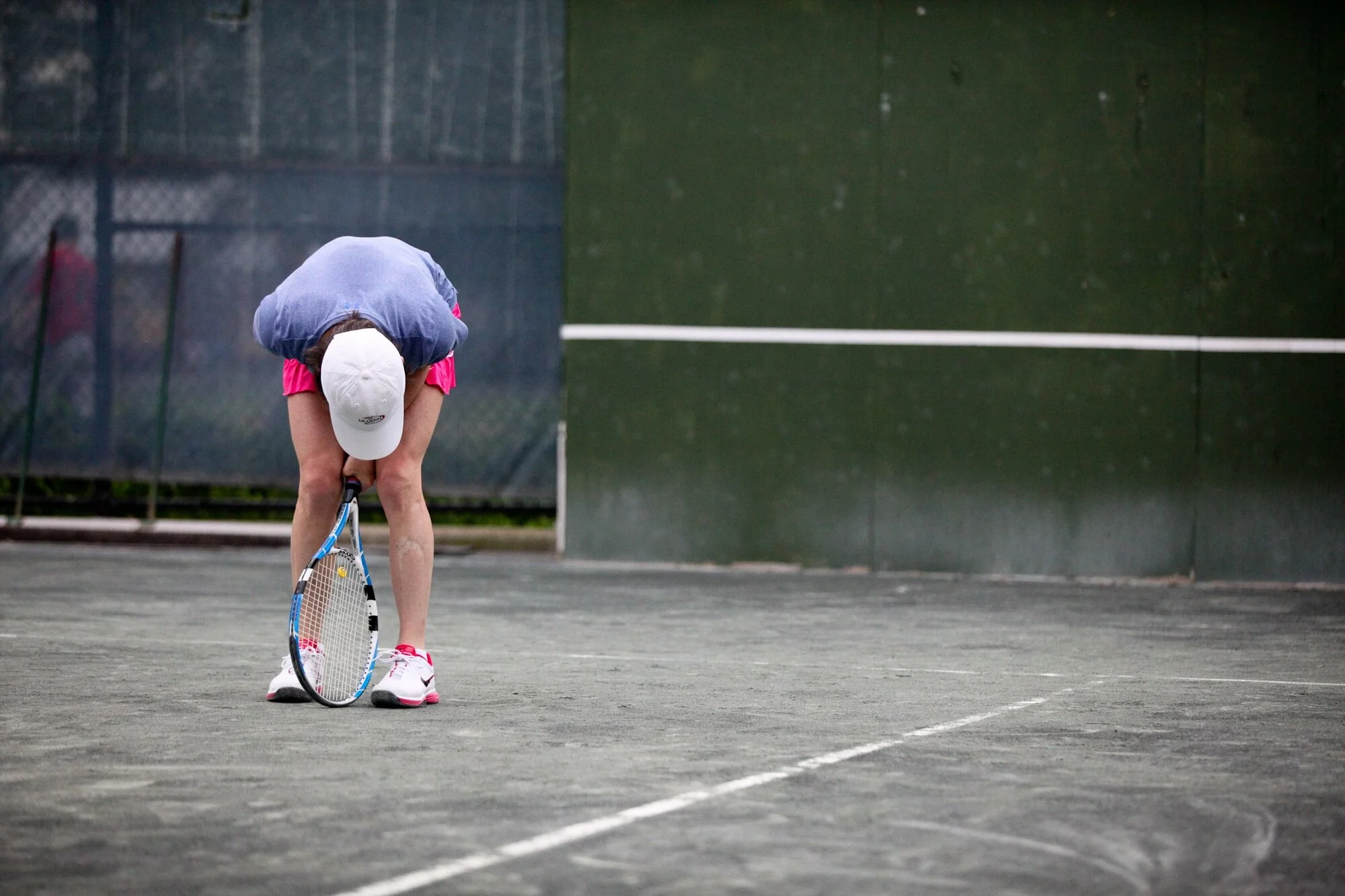 Were Gerald Marzorati and I separated at birth? Photo: Stephen Nessen
Were Gerald Marzorati and I separated at birth? Photo: Stephen Nessen
Then there was the opening line of the accompanying story in The New York Times:
"There is seldom an hour I spend alone with Kirill when I don’t come to feel worn and inadequate."
Worn and inadequate! Thus was I convinced: Gerry Marzorati IS my tennis soul mate.
Marzorati doesn't need tennis to feel adequate and accomplished. He edited The Times Magazine for seven years. Since 2010, he's been the managing editor of digital initiatives. He was an editor at Harper's Magazine and the New Yorker. In short, Gerald Marzorati is at the peak of his career and his powers. Except when he's on the tennis court, as he described in oh-so-familiar detail in his article last August:
Come on, I whined to myself [he had just blown an overhead], having walked to the side of the court for a towel and a gulp of Gatorade. Come on. What was I doing, thinking I could be a tennis player?
Since taking up tennis five years ago, what Marzorati's been doing, as he explains in his piece and in an forthcoming book based on it ("The working title is 'Late to the Game,'" he told me), is trying to stay mentally young, even as his body bends toward 60.
I wanted to do something difficult. That was why I wanted to try tennis. I had been good at things. I was still good at things. I didn’t need a hobby, or a way to meet people. I wanted to get better at something; it had been a long time since I’d sensed that. I wanted to learn something that I would not be learning by reading; I had been reading all of my life, had spent the better part of four decades reading for a living. I wanted, one last time, to struggle at something I could control because the last real struggles were going to be ones I could not.
"I’m seeing that with my own parents now," he told me over bottled water and herbal tea in the Times' 14th floor cafe. "They’re in their mid-80s. At some point you lose the ability to make meaning with your body and that seems a terrible goodbye. And you’re facing your mortality on death’s terms, not your own."
Marzorati initially tried taking up a foreign language. "I did actually take French lessons for a few years. Then I saw I was just transferring my ability to read to this task. What I realized was I wanted to do something physical."
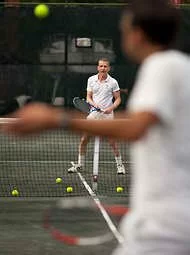 Marzorati getting drilled by Saintly Pro Kirill Azovtsev. Photo, Robert Caplin, courtesy New York Times.He was an athletic kid, playing football, basketball, baseball. He wasn't very good. "I was the shortest, skinniest kid in my class. I just got the crap beat out of me in whatever sport I played."
Marzorati getting drilled by Saintly Pro Kirill Azovtsev. Photo, Robert Caplin, courtesy New York Times.He was an athletic kid, playing football, basketball, baseball. He wasn't very good. "I was the shortest, skinniest kid in my class. I just got the crap beat out of me in whatever sport I played."
Marzorati says he always liked tennis, got to love it, as many Americans did, watching men's tennis in the 1970s. "I was a Borg guy," said Marzorati. "I thought Borg was cool. I didn't hate McEnroe, though."
His favorite player now is Roger Federer. "Watching Roger Federer is a gift," he said. I nod. We are in agreement here, both feeling lucky to witness The Greatest of All Time. "He’s the most beautiful shot maker and has the most beautiful footwork. He’s so light on his feet and balletic and has so many ways of making the most minor adjustments to his grip in the middle of an intense rally."
Marzorati helped birth one of the best articles written about Federer's superior skill and artful genius. That piece, by the late David Foster Wallace, appeared in the short-lived sports magazine Play that Marzorati launched.
"I’m drawn to beautiful things," he said. And the elusive beauty of tennis is part of what drives his love of the sport. "I'm drawn to, can I do something beautiful by hitting this ball properly? That’s part of it." The other part is what he calls an "Emersonian aloneness" of tennis. "It's the idea of being self-reliant and also just really self-conscious, in an interesting way."
I spend a lot of time losing. I don't think you can get better unless you play people who are better than you."
Interesting self-consciousness? Mine is more immolating than interesting. But Marzorati is not a meltdown kind of guy.
"I’m not a self-hater. I’m not racquet smasher," he said. Even though he loses a lot. Just like when he was a kid. Only this time, his failures are part of a deliberate strategy.
"I only play people who are better than me," he said. Marzorati said his Worthy Opponents are all younger than him. Some even played Division A college tennis. "I spend a lot of time losing. I don’t think you can get better unless you play people who are better than you."
Okay, Haters, Marzorati's ability to metabolize losing, to embrace it as a necessary byproduct of his learning process, is rocking my time-space continuum. How does he do it?
It turns out he employs a glass-half-full outlook and a little bit of schadenfreude.
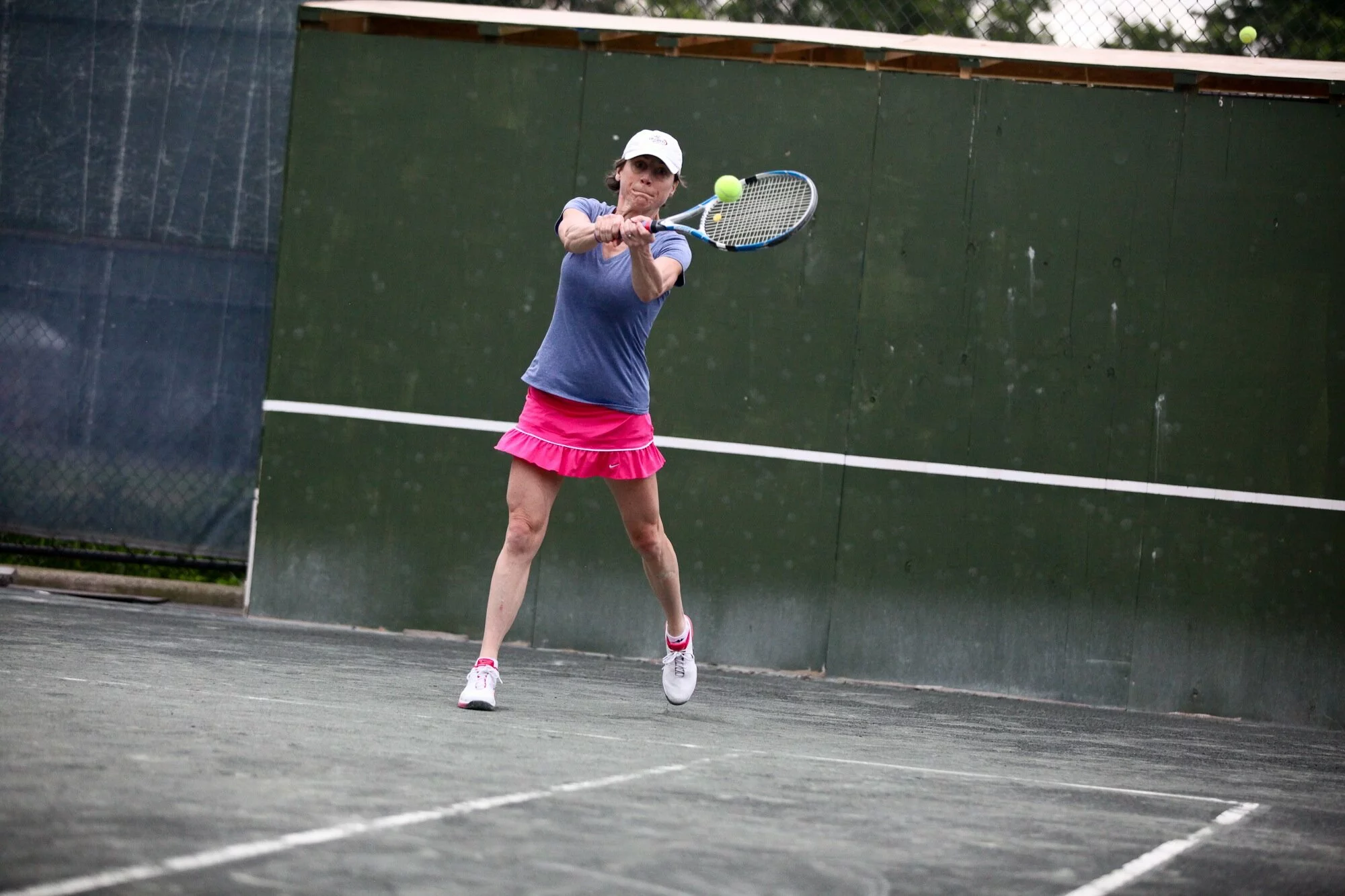 Me, drilling my pushy backhand. But, like Marzorati's game, it's better than it was last year. I think...."One of the key things for me is this idea that I am still improving," said Marzorati. "There aren’t any places in my game that I’m not better than where I was from a year ago." There's a lesson for us, Haters. Stop comparing yourself to the pros, or to your peers, or to some idealized version of yourself making the perfect strike on the ball, and appreciate how far you've come from Day One on the court.
Me, drilling my pushy backhand. But, like Marzorati's game, it's better than it was last year. I think...."One of the key things for me is this idea that I am still improving," said Marzorati. "There aren’t any places in my game that I’m not better than where I was from a year ago." There's a lesson for us, Haters. Stop comparing yourself to the pros, or to your peers, or to some idealized version of yourself making the perfect strike on the ball, and appreciate how far you've come from Day One on the court.
Now the more delicious part, the schadenfreude! Marzorati told me he has a mental advantage against his younger, more skilled opponents: "I'm playing people who already know their game has diminished remarkably. Their frustrations with themselves are with shots they routinely made that they can't do anymore. It’s disturbing. A fair number of them give up."
He didn't cackle with glee and twirl a racquet in his hands with twitchy, joyful anticipation, but he might as well have. Ah, he's a Hater after all!
But his love/hate relationship is really with aging, not tennis. That's what his new book will explore, "neuroscience and the physiology of aging." (That's good, because I thought it was going to be about his love/hate relationship with tennis, and the psychological challenges of the game. That, Haters, is my book. Some day. When I better understand my love/hate relationship with writing.)
"My goal," explained Marzorati, "is to be as good as I possibly can be, given the limitations of who I am and where I began. When will I hit the wall, when my age simply means no matter how much I’m practicing or learning, my game, too, is diminishing? That will be interesting. [There's that word again. I'm going with "devastating."]
"I’m hoping," he said, 'to keep that at bay for as long as possible."
 Amy Eddings Posted on
Amy Eddings Posted on  Sunday, August 4, 2013 at 12:03PM
Sunday, August 4, 2013 at 12:03PM
The loneliness of singles tennis: teammate Dana, in her 2nd singles match. It lasted 3 hours.
 1 Comment →
1 Comment →  Email Article
Email Article 
 Billie Jean King National Tennis Center,
Billie Jean King National Tennis Center,  US Open,
US Open,  USTA,
USTA,  USTA league,
USTA league,  USTA league playoffs,
USTA league playoffs,  competition in tennis,
competition in tennis,  tennis hate | in
tennis hate | in  Doubles,
Doubles,  Mental Toughness,
Mental Toughness,  Tennis Saints,
Tennis Saints,  Tournaments/Matches,
Tournaments/Matches,  Worthy Opponents,
Worthy Opponents,  tennis hate
tennis hate

